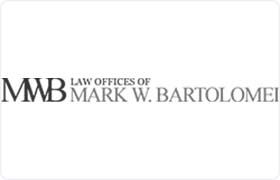Auburn Divorce & Family Law Lawyer, Massachusetts
Sponsored Law Firm
-
 x
x

Click For More Info:
-
Law Offices of Mark W. Bartolomei
51 Union Street Suite G10 Worcester, MA 01608» view mapDivorce & Family More Than 20 Years of Dedicated Service
Worcester divorce and bankruptcy attorney for more than 20 years.
800-931-6101
Marina R. Matuzek
✓ VERIFIEDBankruptcy & Debt, Divorce & Family Law, Criminal
Marina R. Matuzek is a practicing lawyer in the state of MA handling Bankruptcy and Family Law cases.
Frederick C. Rushton
✓ VERIFIEDDivorce, Personal Injury, Immigration, Criminal
When the going gets tough, you need answers to your tough questions.
Since 1994, Attorney Frederick C. Rushton has provided comprehensive legal counsel and representation in matters of Personal Injury, Family Law, Crimi... (more)
Maria L. DiPilato
Family Law, Corporate, Business Organization, Estate Planning
Status: In Good Standing
FREE CONSULTATION
CONTACTRoxann C. Tetreau
Real Estate, Lawsuit & Dispute, Family Law, Divorce & Family Law
Status: In Good Standing
FREE CONSULTATION
CONTACTJames Gavin Reardon
Alimony & Spousal Support, Adoption, Criminal, Animal Bite
Status: In Good Standing Licensed: 40 Years
Jeffrey P Greenberg
Ethics, Wills, Wills & Probate, Family Law
Status: In Good Standing Licensed: 34 Years
 Mark Bartolomei Worcester, MA
Mark Bartolomei Worcester, MA AboutLaw Offices of Mark W. Bartolomei
AboutLaw Offices of Mark W. Bartolomei Practice AreasExpertise
Practice AreasExpertise


